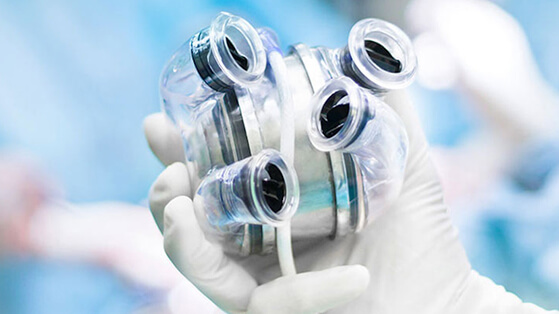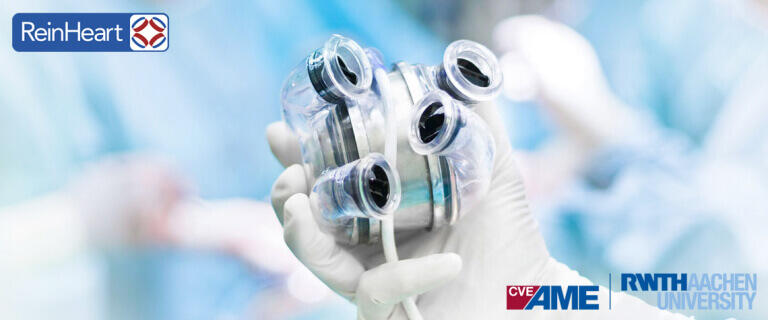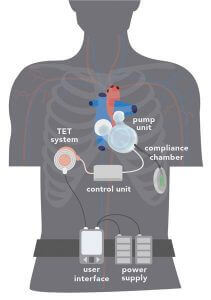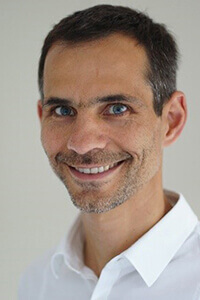“ReinHeart” Artificial Heart System

Corscience implements physiological control
Together with ReinHeart TAH GmbH and RWTH Aachen University, Corscience has developed physiological control for the fully implantable artificial heart system “ReinHeart”. This allows the pump capacity of the artificial heart to automatically adapt to the patient’s own circulatory condition. This closed-loop control system has already delivered promising results in laboratory tests.
An artificial heart as an alternative to a heart transplant
The “ReinHeart” artificial heart system is to serve as a new therapy for patients with terminal heart failure. A fully implantable artificial heart is also referred to as a “Total Artificial Heart” (TAH). The TAH from ReinHeart completely replaces the function of the natural heart and, in doing so, represents a real alternative to heart transplantation. „ReinHeart“ can bridge the waiting period for a donor heart and offer a necessary alternative therapy to transplantation due to shortage of donor organs, respectively. In addition, it is bringing with it a significant improvement of the patient’s quality of life compared to previous systems. This makes it possible to alleviate the shortage of donor organs.


“ReinHeart” is designed to beat almost maintenance-free in the human body for many years. The pump unit is the central element of the artificial heart system and completely replaces the patient’s human heart. In this pump unit, a patented, maintenance-free linear drive generates the artificial heartbeats necessary for survival. However, the artificial heart system still requires physiological control in order for the pump output to adapt to the individual circulatory condition of the patient.
Complex control system controls the pump capacity
In order to guarantee patient-individual control of the artificial heart, Corscience, together with ReinHeart TAH GmbH and its research partner RWTH Aachen University (“Cardiovascular Technology” teaching and research area) has developed highly reliable algorithms for detecting the circulatory condition. Corscience has optimized the algorithms for use in an energy-saving, Class III mobile medical device. This is where the Erlangen-based medical device engineering specialist was able to draw upon its extensive and long-standing experience in medical data analysis, algorithms and resource-saving embedded programming.
By converting the algorithms into IEC 62304-compliant firmware, the artificial heart could be tested in laboratory experiments. By working with the project partners, a highly complex closed-loop control system was thus created that independently adapts the performance of the artificial heart to the physiological load on the body. Initial tests on an artificial circulatory system were successful.
Corscience is proud to have made a contribution to this ambitious development work. We would like to thank all project partners for their creative and faithful cooperation.
Thanks to our expertise in the standards-compliant system development of safety-critical medical devices, the development of vital parameter algorithms and our in-depth understanding of the cardiovascular system, we are also able to implement your development or research project in the fields of life-supporting systems, ECMO, dialysis, ventilation, defibrillation, implant and IABP controls as well as VADs in a way that is efficient and geared toward success. Get in touch!

„Optimal project management, high efficiency and effectiveness characterized the joint project with Corscience.“